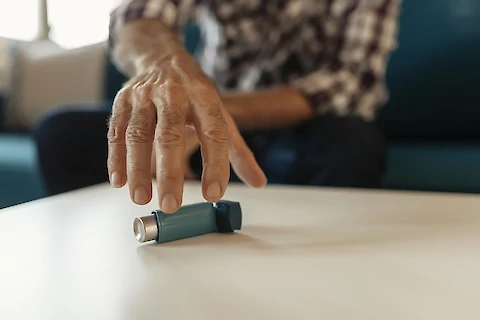
Asthma is a common respiratory condition afflicting people of all ages, including our older loved ones. As caregivers, it is crucial that we are prepared to manage asthma attacks effectively in seniors. This involves understanding common triggers, recognizing early signs of an attack, knowing the correct steps to take during an attack, and implementing preventative measures. With the correct knowledge and preparation, we can ensure the safety and comfort of our seniors during these challenging instances.
Understanding Asthma in Seniors
Asthma is a chronic respiratory condition defined by inflammation and narrowing of the airways, which can be exacerbated in our seniors due to age-related changes in lung function. Common triggers include allergens, extreme weather conditions, and respiratory infections. Recognizing these triggers can help caregivers take steps to prevent exacerbations.
Recognizing Signs of an Impending Asthma Attack
Early detection of asthma attacks in seniors is crucial. Symptoms to watch for include increased breathlessness, frequent coughing, wheezing, and chest tightness. During periods of illness, seniors may have a higher risk of suffering asthma attacks due to increased mucus production. Monitoring these signs can enable caregivers to intervene promptly, possibly preventing a full-blown attack.
Steps to Take During an Asthma Attack
In the event of an asthma attack, the immediate step is ensuring the senior has access to their inhaler or nebulizer, devices that deliver medication directly to the lungs. Caregivers should also ensure they remain calm and project this calmness to the senior, as panic can exacerbate the situation. If symptoms persist, it is important to seek medical help as soon as possible.
Preventative Measures to Avoid Asthma Attacks
Regular health check-ups with healthcare providers can help monitor the senior's health and adjust medication as necessary. Additionally, maintaining a healthy lifestyle that includes a balanced diet and regular exercise can support overall lung health. It's also important to create an environment free of allergens and irritants that could trigger an attack. If you know that your senior loved one is triggered by pollen, for example, you may want to avoid going outside when pollen is high. Likewise, clean regularly to reduce dust, which can serve as an irritant.
Developing an Emergency Plan
An organized emergency plan can make a difference in managing sudden asthma attacks in seniors. Such a plan should outline steps to take during an attack, emergency contact numbers, and the location of medications. Both the caregiver and the senior should be familiar with this plan.
Open Communication with Healthcare Providers
Keep the lines of communication open with the healthcare provider, ensuring they stay updated on any changes in the senior's symptoms. Regular reviews of the senior's medication can ensure they are suitable and accessible at all times.
Help Caring for Asthmatic Seniors
Managing asthma attacks in our seniors is a crucial facet of their care. It requires understanding the condition, recognizing the signs of an attack, knowing the steps to take during an asthma episode, implementing preventative measures, and maintaining open communication with healthcare providers.
As caregivers, you are not alone in this journey. At Senior Helpers Seattle, we provide the necessary support and resources to assist you in your caregiving duties. For those residing in Seattle, Bellevue, Kirkland, Redmond, or Sammamish, contact us today and let us help you protect your loved one's overall health and safety.